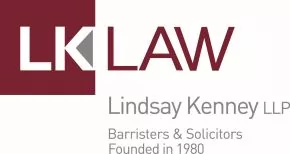- with Senior Company Executives, HR and Finance and Tax Executives
- in United States
- with readers working within the Accounting & Consultancy, Property and Law Firm industries
There is a little-known concept in Estate litigation called the Zombie deed, which deals with property transfers, implemented before the deceased passed away, but was not completed until after passing. Hence the zombie aspect, where even after death, the transfer takes effect.
In the case of Plecas v. Plecas, a 2015 British Columbia Supreme Court decision, there was this exact scenario. Before her passing, the mother and the son signed off and completed all the documents necessary to transfer the assets. The goal was to avoid paying taxes, by completing the documents but not submitting them to the proper government agencies so no transfer taxes would become due. There is a concern in law, that the court will not perfect an imperfect transfer. This means, that just because someone wanted to gift it, if they did not actually transfer it, then it is not a gift. The long-standing view, is that for aninter vivos[gift during lifetime] transfer to be complete, two elements must be present:
- the donor must have intended to make a gift, and
- the donor must have delivered the subject matter of the gift to the donee:Shkuratoff v. Shkuratoff,2007 BCSC 1061.
However, zombie deeds seem to be a way to circumvent that issue to some degree as the transfer does not occur until sometime later, possibly much later, but not in all provinces. A recent Ontario court decision says zombie deeds are not proper Estate planning tools, which differs from the British Columbia approach.
In the case of Plecas, the Court took a detailed analysis of the facts in concluding that the zombie deed was valid. The court focused on these facts:
- The evidence here establishes that the Deceased intended to transfer the Farm Properties to her Son, and the Home Properties to Betty-Anne Turner;
- The Deceased' intent is evidenced by her wishes as expressed to her solicitor, and by her execution of the Form A Transfers;
- Her intent is also evidenced by the fact that the powers of attorney executed by the testatrix shortly before her death gave the defendant and Betty-Anne Turner authority to transfer the properties to themselves;
- But for the tax implications of immediate registration, she would have registered the Form A Transfers during her lifetime; and
- There is nothing to suggest that Alice Plecas intended anything other than for the Form A Transfers to have an immediate, binding effect.
One of the other key facts was that once the documents were signed, the person who was supposed to receive the transfer, then held onto the paperwork until such time they registered it. The reason is that if the one transferring the property kept the documents, then they could destroy them at any time before their passing if they wanted too. The Court drew a distinction there and said that keeping the signed form shows that the transfer was not "complete."
If you find yourself in this situation, seeking proper legal advice is essential. Zombie deeds can be a planning tool, but they are not without difficulties.
About Mackrell International – Canada - Lindsay Kenney LLP is a full service business law firm with offices in Vancouver and Langley, BC and a member of Mackrell International. Mackrell International – Canada is comprised of four independent law firms in Alberta, British Columbia, Ontario and Quebec. Each firm is regionally based and well-connected in our communities, an advantage shared with our clients. With close relations amongst our Canadian member firms, we are committed to working with clients who have legal needs in multiple jurisdictions within Canada.
This article is intended to be an overview and is for informational purposes only.


